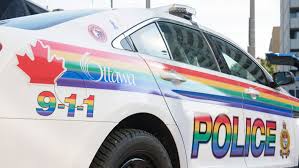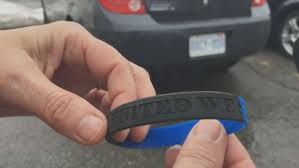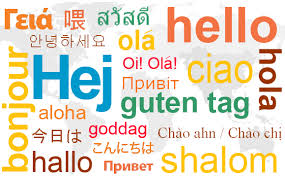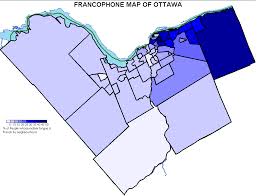
I was going to write about our trip to Idaho, I really was. But, as often happens when it comes to BethBlog, I got distracted and now I want to talk about something else. Pride parade inclusivity, to be exact. Right about now you’re probably wondering what even I, one of the seasoned Oscar-the-Grouches of the figurative trash can known as the world wide web, could possibly have to bitch about when it comes to the inclusiveness of Pride parades. Isn’t everyone invited to participate in Pride by definition? Isn’t it all about everyone being different, and being different being ok? Sure – unless you’re a police officer.
Those who know me well know I love reading – particularly newspapers. There’s just something about the dry, clean, faintly chemical aroma of broadsheet, the delicate grey crinkle, the inky smudges that linger on your fingers …. I also find many blog post topics while perusing newspapers. Our world is an odd one, with plenty to talk about. This time, what caught my eye was an article about police officers being allowed to take part in Calgary’s Pride celebration – but not in uniform. This is because the LGBTQ+ community has not always been treated kindly by the law. They faced discrimination for many years. This discrimination was upheld and – at times – made worse by the police. Anti-sodomy laws made the very existence of gay people illegal, and therefore dangerous. Their romantic relationships were considered a crime against nature. Police officers raided gay bars to destroy the spaces where LGBTQ+ people felt safe. Gay people avoided involving the police even when they were the victims of crime, because they knew they wouldn’t be treated fairly – and a police presence might even make things worse. Gay-bashing was about more than cruel words.
Other cities have faced similar controversy in planning their Pride celebrations, including Vancouver and Toronto. Here in Ottawa, police officers were asked by Pride organizers to refrain from wearing their uniform if they chose to join the parade. Ottawa Police Chief Charles Bordeleau denied the request, stating that officers could wear whatever they like while participating in the Pride parade, and that he, himself, would be attending in uniform. The uniform, he explained, is part of police officers’ identity – it represents how they serve their community. Indeed. Freedom of expression ought to be one of the core values of a Pride celebration. We live in a society where we can be, and express, anything we want – including a gay cop who is proud of both aspects of their life and experience, or a straight cop who wants to represent the respect and support modern police officers offer the LGBTQ+ community.
It is understandable, given the history of the LGBTQ+ community’s interactions with law enforcement professionals, that the relationship between the two is sometimes fragile. Very important – and very delicate – dialogues have happened, and must continue to take place, to foster trust and understanding. Police officers have, in recent years, been enthusiastic participants in Pride celebrations across the country. Hands have been extended and clasped in friendship across decades of marginalization, abuse, fear and mistrust. This is as it should be. We cannot move forward without leaving the past in the past. Real progress has been made. However, Pride organizers risk damaging – or even losing – that progress if they allow the parade to become less inclusive to punish today’s police officers for the mistakes of past ones. Like the rainbow symbol it has adopted, Pride should be a coming-together of all sorts of people – not a tool for revenge.
* It should be noted that not all Pride celebrants want to exclude law enforcement officers, or their uniforms. Many members of the LGBTQ+ community have stated that their Pride parade includes the police. Kudos to them! They are the way forward.







